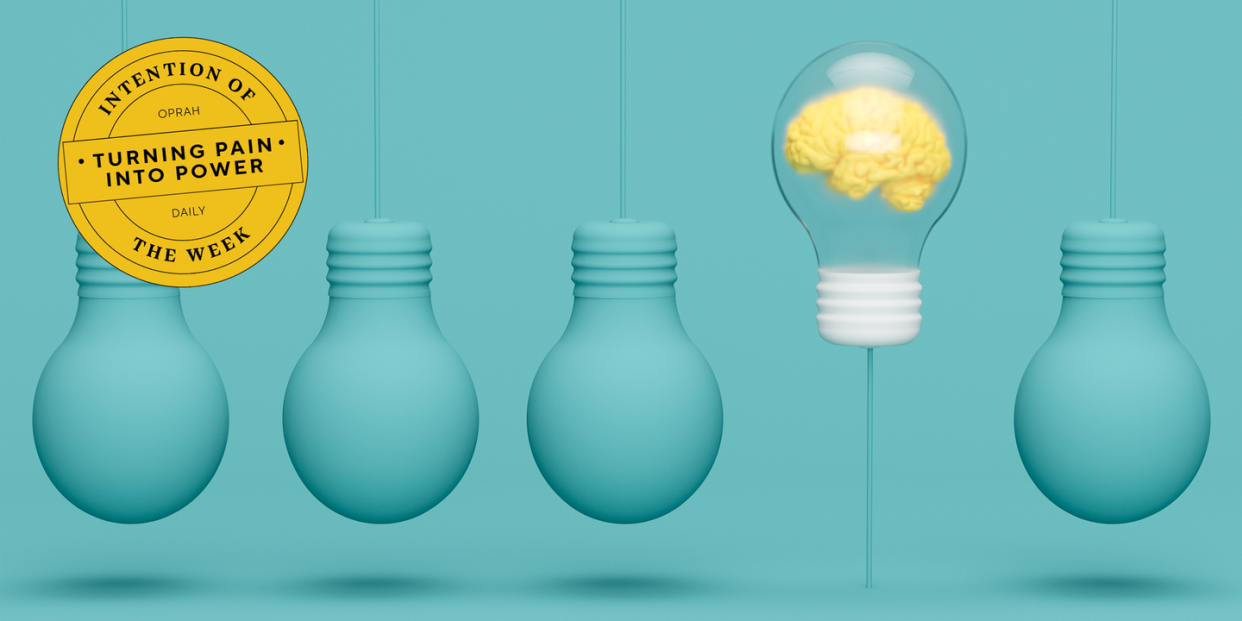Your Brain on Trauma

Soon after starting his practice in 2010, Mastin Kipp, creator of Functional Life Coaching, noticed a pattern of behavior in his clients. “They would set goals—try a meal plan, quit their job—but not follow through,” he says. “After years of asking why, I realized that everyone’s been through something that gave them ‘proof’ that they shouldn’t or couldn’t move forward.” Turning to neuroscience, Kipp came up with a clearer answer: “Not achieving goals wasn’t just due to a self-limiting belief—it was due to trauma.”
Kipp’s research pointed to the fact that trauma embeds itself in the body, affecting not only our emotions but also our brain’s ability to function. “Heightened stress can cause the nervous system to go into fight-or-flight response,” he says, “which hijacks resources from the neural frontal lobe, where executive function skills like decision-making and memory live.” Meaning that trauma isn’t just a matter of clinging to bad experiences but also being impaired by them—sometimes permanently. “This isn’t solely about what happened to you,” says Kipp. “It’s about what happened inside you because of what you’ve been through.”
Ultimately, Kipp says, addressing trauma is a means to clear away mental and emotional roadblocks: “People want to live a life of purpose, but if your nervous system is holding you back, you’re never going to get there, no matter how many affirmations or meditations you do.” Below, Kipp to addresses the basics of how we’re harmed—and how we heal.
What is trauma, really?
I operate from the definition that it’s any experience of threat, disconnection, or immobilization that results in the dysregulation of your mental, emotional, spiritual, or bodily health. That might manifest as insomnia, anxiety, perfectionism, self-harm, ADHD.... Addiction is more or less a trauma response—it’s a way to regulate your emotional state to cope with the underlying pain. So the question isn’t why the addiction, but why the pain? When you understand the science, shame goes right out the window because you realize your nervous system’s reaction wasn’t necessarily “bad”; it was just an adaptive response.
How do I know whether what happened to me really counts as trauma?
When trying to heal, we don’t litigate our experiences: If a traumatic experience is preventing you from doing regular activities, it’s a problem. Being stuck in a routine of panic, procrastination, or depression can be a symptom.
Why is it that two people might experience the same event, but only one sustains lasting trauma?
It’s a question of how much emotional resilience they had going into it. Think of it this way: If you ask someone with no muscles to bench-press 400 pounds, it’ll crush them. But Schwarzenegger could do it without breaking a sweat. What matters, too, is the aftermath—and the acknowledgment—of an event. If two people are assaulted and one isn’t believed but the other is cared for by an empathetic witness, the latter will heal so much better. The long-term prognosis will be completely different.
What’s the best way to treat trauma?
No method—talk therapy, cognitive behavioral therapy, Ecstasy, or anything else—will work if the client doesn’t feel safe with the practitioner. In many ways, the safety is the treatment, because feeling secure discussing things that were previously unspeakable is a corrective experience in itself. In general, it’s best to find practitioners who are skilled at navigating traumatic memories or flashbacks. But the person who effectively treats you may not have an alphabet after their name—shamans have been around way longer than the American Psychiatric Association.
What’s the goal when addressing trauma?
Trauma disconnects you and shuts down your ability to thrive—you’re in survival mode. With effective treatment, it’s not that you won’t experience those traumatic responses again, but the intensity, frequency, and duration are decreased. When someone gets to the point where they can say, “That isn’t who I am—that’s something that happened to me,” it’s a revelation.
You Might Also Like

